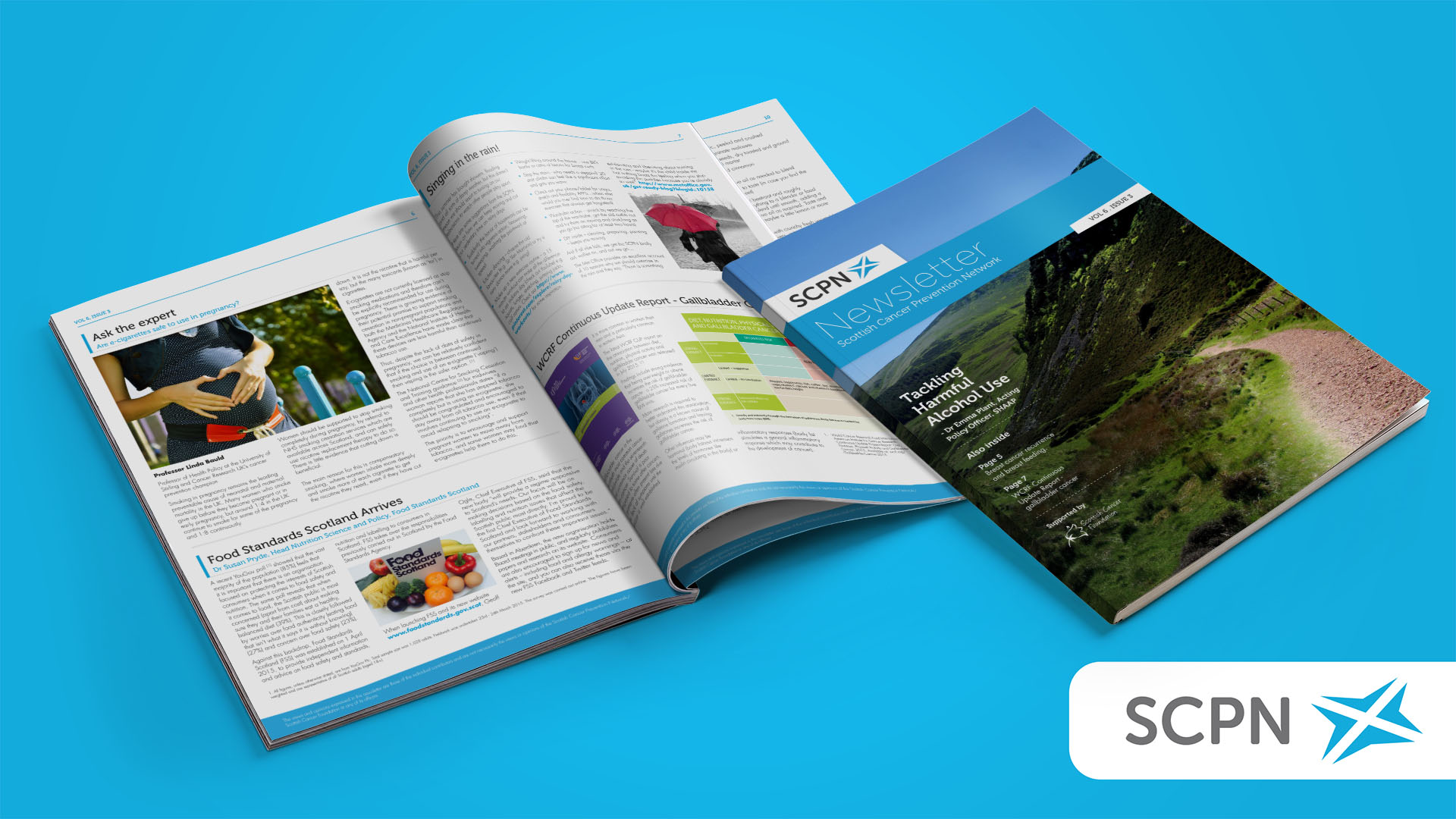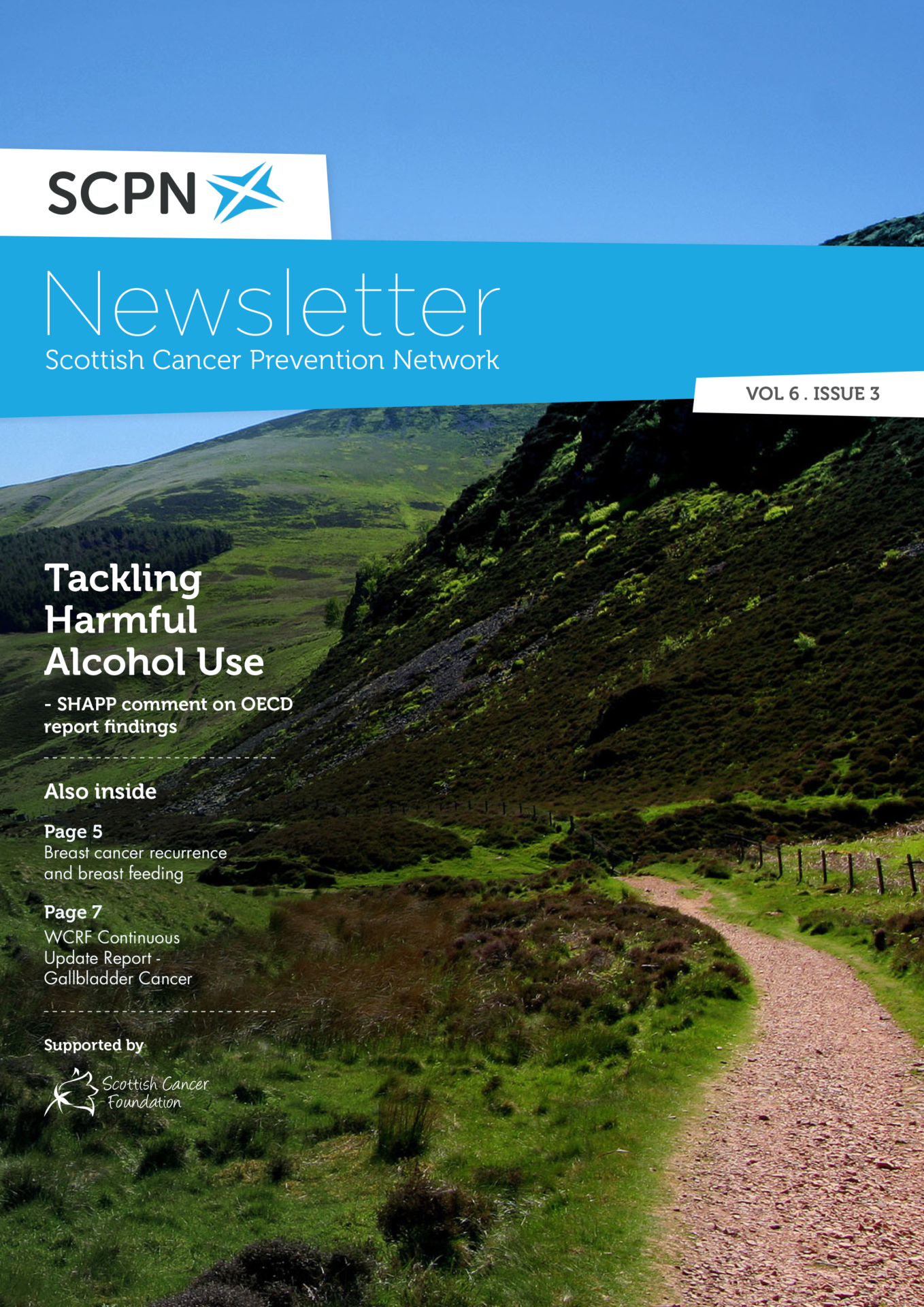
Volume 6, Issue 3

20 Jul 15 |
In this, our Summer 2015 issue, we hear from SHAAP Acting Policy Director Dr Emma Plant on Tackling Harmful Alcohol Use, discuss the latest research on breast cancer recurrence and breast feeding, and disseminate the latest from WCRF’s Continuous Update Project, as well as looking at cancer prevention with a Australian perspective, following our co-director’s visit to WA, and more. Scroll down for this issue’s editorial, or read the whole thing right below.
Click here to download this issue as a PDF.
Editorial
In May I was delighted to find myself leaving Perth, Scotland, to spend a couple of weeks in Perth, Western Australia (WA). Like many others, I found myself making comparisons between the two locations, although unlike others, my focus was cancer prevention activities.
My time in WA was carefully scheduled by the Cancer Council WA an organisation that “works within the community to reduce the incidence and impact of cancer” with a strong and visible stream of work on cancer prevention as well as main stream activities around early detection measures, supporting cancer patients and education for health professionals. In WA around 180 cancer council staff provide a service for a population of 2.5 million people, of which about 45 focus on prevention and early detection. Hard to see a comparison with any one Scottish cancer charity in numbers alone, and none with any paid staff time working on prevention.
From my lecture and media schedule, it was clear that cancer council do serious business on promoting prevention. Nine talks in seven days, three radio interviews and one live online chat is more than I have seen on the topic in Scotland in 5 years. Amazing audience sizes for public lectures, primary care and other community workers with video links to the remote and rural. Even the medical students billeted in Kargoorlie came along
to hear about what they don’t get taught in their undergrad curriculum.
The medical students got me thinking about why it is that many health professionals have so little knowledge about the evidence on lifestyle and the preventability of cancer, and how to assess and advise on behaviour change at opportunistic or “teachable moments”. Cancer continues to be a topic that is discussed with fear, with beliefs about fatalism, and family history dominating. Health professionals are ideally placed to advocate and promote risk reduction but unless they are trained to do so within cancer settings, then the chance may well pass by. Interestingly, the Australian students said they were familiar with many of the lifestyle issues discussed, asking the questions and pointing patients in the right direction BUT, they almost never saw the senior staff put this into practice.
So there are opportunities with the next generation of health professionals, and in the next academic year, the SCPN will be developing a health professionals student section to engage those in training. Our students tell us that prizes attract interest, free conference attendance and interesting social media campaigns are a good way to get students engaged. Hearing from health professionals who do actually promote cancer prevention activities is also important. We would welcome contact from anyone from any university or college who is involved in training (medical, nursing, AHP, dentistry) and would like to know more, would like to get involved or has ideas to share – send an email to scpn@cancerpreventionscotland.org.uk.
Professor Annie S. Anderson
@anniescotta
Professor Bob Steele
@BobSteele6

The SCPN Newsletter: Volume 6, Issue 3
In this, our Summer 2015 issue, we hear from SHAAP on Tackling Harmful Alcohol Use following OECD report findings, discuss research on breast cancer recurrence and breast feeding, and disseminate the latest from WCRF’s Continuous Update Project, as well as looking at cancer prevention from a Western Australian perspective, following our co-director’s visit to Oz, and more.